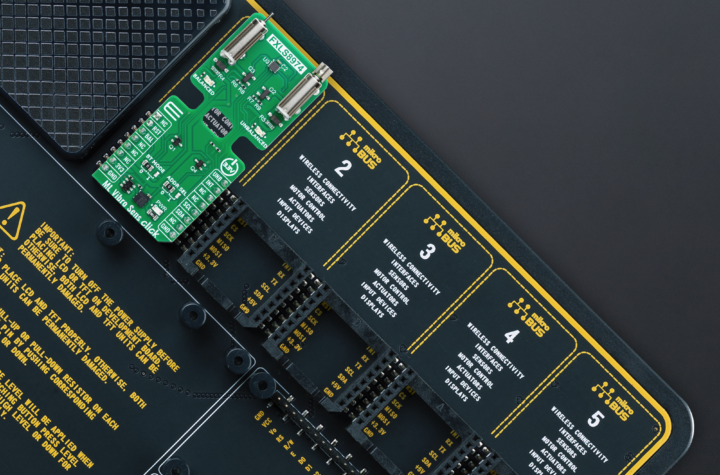
Rising commodity prices and turmoil in the automotive supply market capped by a rash of bankruptcy filings, may be creating an opportunity for manufacturers to rethink their price-based, often adversarial relationships with suppliers. As purchasing gains new attention, companies are looking to build systems based on knowledge and continuous learning that could pay off in innovation and lower costs for both sides over time. This is the advice from Booz Allen Hamilton – a leading, global consulting firm. The company, which serves clients spread across six continents, helps government and commercial clients solve tough problems by providing services in strategy, operations, organization and change, and information technology.
For the automotive industry, going through one of its trickiest periods, getting a strategic edge especially in sourcing, is vital. So Bill Jackson, a senior vice president at Booz Allen Hamilton and leader of its Global Automotive Practice and Michael Pfitzmann, a principal with Booz Allen Hamilton released their study titled Knowledge Trumps Price which offers insights into how different auto firms across the globe source. Jackson’s main focus is on operations, strategy, acquisitions and business turnarounds. Much of his work has been with highly engineered products, automotive component suppliers, industrial service companies, and consumer products manufacturers. Pfitzmann, serves automotive and other industrial clients and specializes in sourcing, manufacturing strategy, competitive cost analysis, and operations
management.
Some of the observations Jackson and Pfitzmann made in Knowledge Trumps Price include the fact that knowledge-based sourcing is a hallmark of Japanese firms, including Toyota and Honda. In fact, their success is in part attributed to this strength. “Indeed, new Booz Allen Hamilton research into the purchasing efficiency of automotive suppliers shows more efficient companies have a relatively strong focus on new parts sourcing, and fewer resources focused on supplier quality and delivery issues. The most efficient firms tend to have a smaller supply base and more centralized operations for planning, negotiations and supplier development,” says the study.
Jackson and Pfitzmann say that Western manufacturers have begun to experiment with knowledge-based sourcing, but they should also develop strategies to cope with some common obstacles. “The transition to knowledge-based sourcing takes time and a balanced approach. To do that they must find ways to generate some short-term results in order to stay the course and keep their suppliers, engineers, sales and some executives on board long enough to work through to the deeper, more meaningful efficiencies knowledge-based sourcing promises.,” they say in Knowledge Trumps Power.
According to the study, a major obstacle is the common belief that year-over-year price-downs will hit the bottom line. In many organizations today, executives focus on and reward aggregate savings, but do not address the true, long-term requirement to be advantaged. New tools and structures must be in place to create knowledge-based sourcing. Knowledge-based sourcing requires the development of close collaboration between purchasing and engineering and other parts of the company, which is often a major cultural change for Western companies.
“Purchasing staff need new skills. Typically they are focused simply on the competitive bidding process. To enact successful knowledge-based sourcing, they must have strong strong expertise in elements of engineering and production in addition to supply chain knowledge. While Western firms are only now beginning to test knowledge-based sourcing we are seeing some early indications of success. One early success story for an automotive manufacturer was the cost model for various mechanical assemblies which identified 15% in savings without compressing the supplier’s profit margin. In another case, a major aerospace manufacturer and one of its primary suppliers developed a detailed model, including sub-tiers, of the enterprise costs, and were able to identify significant cost savings,” say Jackson and Pfitzmann.
Automotive Industries spoke to Bill Jackson, senior vice president of Booz Allen Hamilton and leader of the firm’s global automotive practice.
AI: Please tell us a little more about your paper Knowledge Trumps Price – what is the significance of the title?
In our view, the traditional price-based sourcing model has reached its limits. Our experience has shown that knowledge-based sourcing is a more effective way of doing business, as it aligns the interests of suppliers and customers to design products, parts and and processes to achieve the best performance at the lowest cost possible.
AI: Why is this paper so important to automotive companies today?
Automotive manufacturers and suppliers today are under immense pressure to reduce costs in the face of global competition and rising raw material prices. As supplier margins are generally already thin and bankruptcies are widespread, trying to squeeze further price concessions out of the supply base is no longer the right answer. Players in the automotive industry need a new purchasing model that continuously strives to reduce cost and improve performance by optimizing product, part and process design along the supply chain. This requires knowledge of processes, industry economics and supplier capabilities – and the ability to institutionalize the lessons learned.
AI: What are some of the other observations you made while researching the paper – what are some of the biggest challenges facing the automotive industry today?
The automotive industry is highly competitive in a very dynamic and challenging environment. While many of the traditional Western markets have matured, product life cycles have shortened, environmental and regulatory demands are increasing, global competition continues to intensify and raw material prices have been on the rise. Under these circumstances, being cost-competitive and not missing the boat on innovation are both imperatives. Advantaged supply networks and effective supplier relationships are very critical elements to achieve these objectives, as material costs constitute a large portion of an automobile and innovation is often driven from the supplier level.
AI: How effective do you think current sourcing methods of Western auto companies are? And how can they improve?
Many purchasing departments at Western auto companies have become very functionally specialized and efficient at executing a large number of transactions related to the supply base. Buyers are savvy in negotiations, running RFP’s, identifying, qualifying and certifying new suppliers, and in a host of other commercial and transactional activities. What’s often missing is a clear understanding of what the business truly needs from its suppliers, what an advantaged supply base looks like, and how to best engage suppliers to jointly develop and manufacture high-quality products on-time and at the lowest cost possible. Taking purchasing to the next level requires a true cross-functional effort to implement knowledge-based sourcing in the organization.
AI: And how different are the sourcing methods used by auto firms in other parts of the world?
Toyota and Honda are the most prominent, but not the only, examples of companies that have adopted a different sourcing model, one that is based on building knowledge and gaining a deep understanding of costs and processes in the supply base and along the supply chain. They partner with their key suppliers to jointly and continuously drive improvements towards ambitious but realistic targets for product and part cost and quality, delivery, launch and innovation performance.














More Stories
Meet Rita Case – recipient of 2024 NAMAD Lifetime Achievement Award
How Much Can You Save Annually by Switching to Energy-Efficient Rotary Solenoids
Navigating the Electrifying Future of Automotive Batteries – Insights from Focus CEO on Lithium, Graphene, and Emerging EV Tech Trends